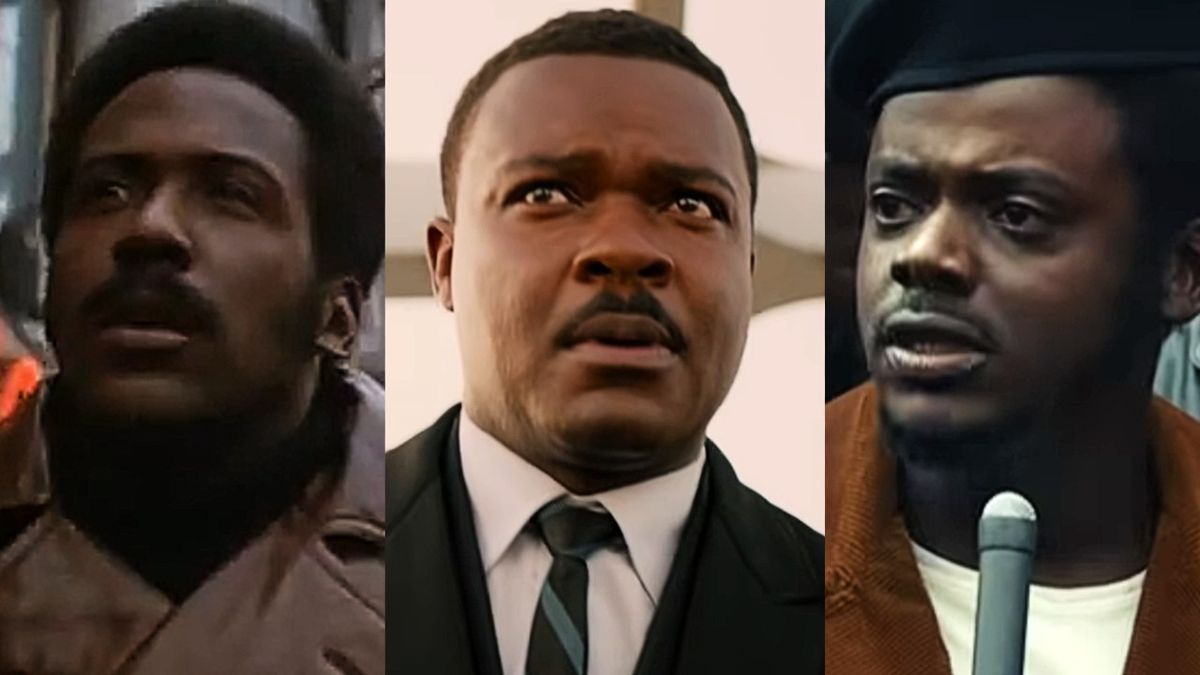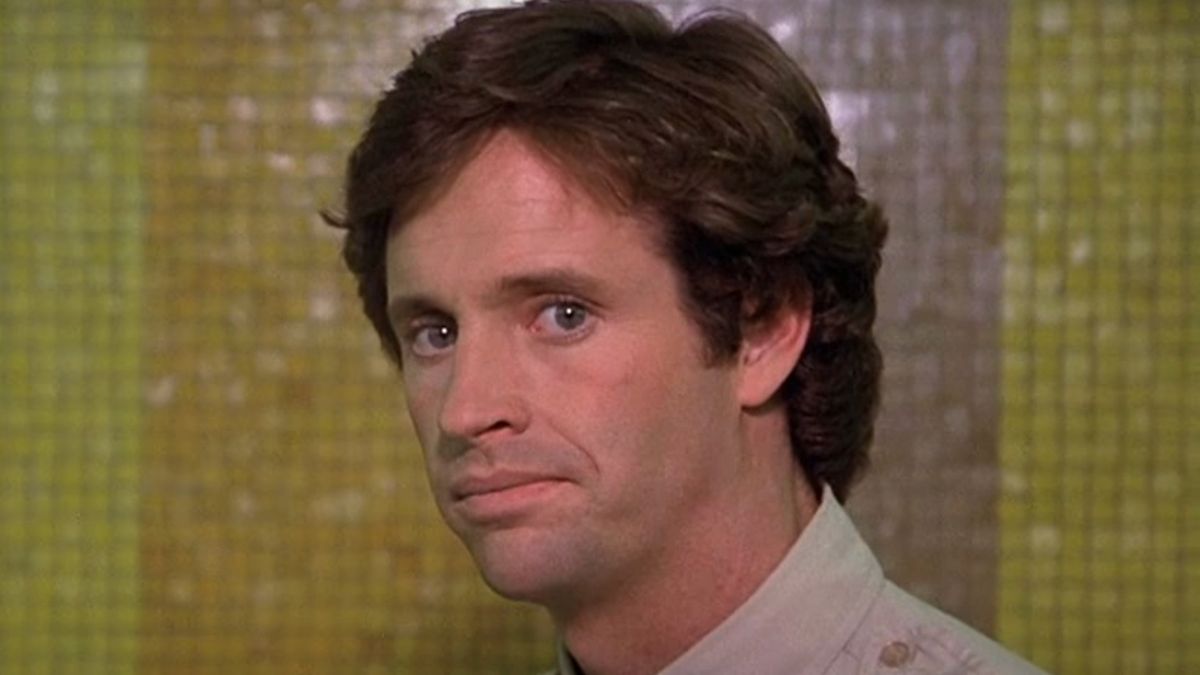Of course, most viewers focus on the Academy Awards’ big four – Best Actor, Actress, Director, and Best Picture. However, Best Original Song crept up in the last four decades to become a coveted prize for music’s top stars, as seen by pop superstar Billie Eilish picking up her second Oscar this year. It is often a missing piece in a music superstar’s EGOT quest.
Black musicians have racked up many nominations in the category since it was first presented in 1934. The special list includes everyone from music legends like Lionel Richie, Quincy Jones, and Ray Parker Jr. to contemporary icons like Beyonce, Kendrick Lamar, Mary J. Blige, and The Weeknd. Unfortunately, that hasn’t translated into an avalanche of Black Best Song winners, with only seven total winners. The low win tally almost ignores Black music’s contribution to film.
Some excellent winners captured the hearts and minds of moviegoers, critics, and pop culture. So, here are the five best Oscar-winning songs by Black musicians to check out during this Black Music Month.
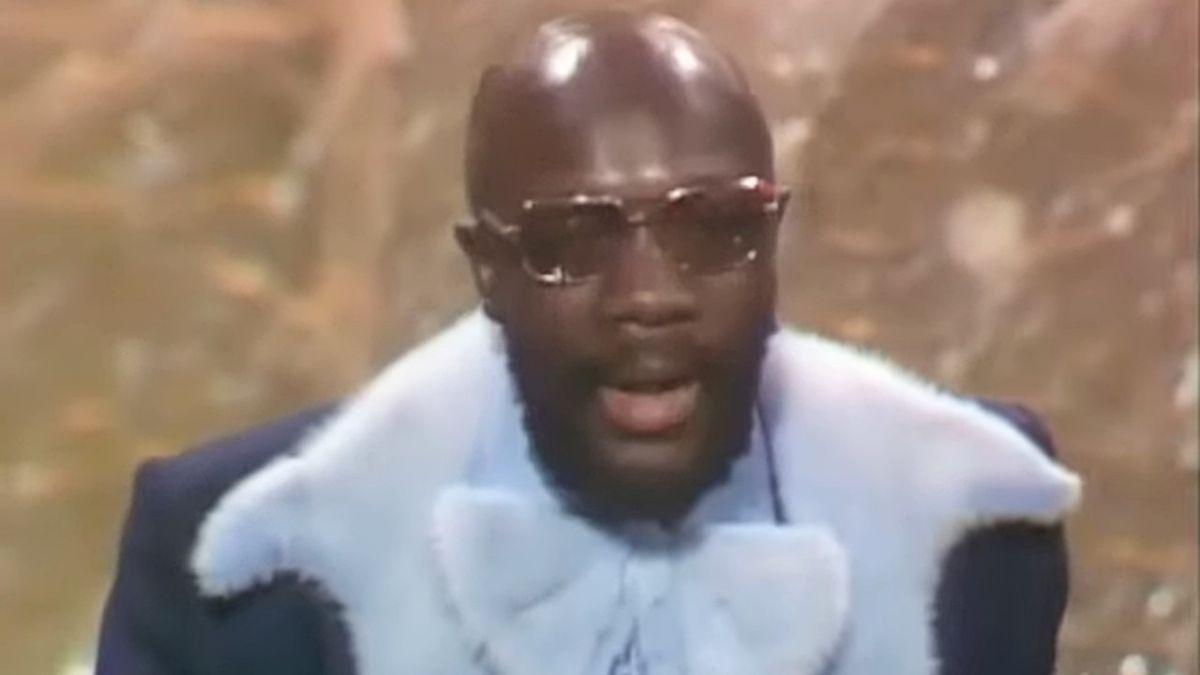
“Theme From Shaft” – Isaac Hayes
Isaac Hayes’s “Theme from Shaft” was a notable musical change upon its release in 1971 to set the tone for the blaxploitation classic Shaft. The title song was considered one of the earliest disco songs.
The iconic tune came to fruition after Hayes was promised an audition for the title role, which he lost to Richard Roundtree. The film’s director, Gordon Parks, contributed to the song’s lyrics, and the theme blended soul and funk with live instrumentation and arrangement by Hayes and Johnny Allen, which drew inspiration from late soul singer Otis Redding’s “Try A Little Tenderness.” The song’s lyrics tapped into John Shaft’s coolness, courage, and sex appeal with famous quotes like “a bad mother—” and “you’re damn right!”
While “Theme from Shaft” is considered one of cinema’s best opening songs, it didn’t start that way. Originally, it was a typical film opener before it and Shaft’s popularity took off, forcing Stax Records to release it as a single. The film’s theme was successful in both the US and UK, reaching the Top 5.
After winning Best Original Song at the 44th Academy Awards, Hayes became the first Black person to that award and a non-acting award. He also became the first person credited as a writer and performer of an Oscar-winning song. The late singer and actor has been cited as the first theatrical performance at the awards ceremony. The “Theme from Shaft” won two Grammys – Best Instrumental Arrangement and Best Original Score. The hit song’s replay value and impact garnered placement on AFI’s 100 Years… 100 Songs and in the Grammy Hall of Fame.
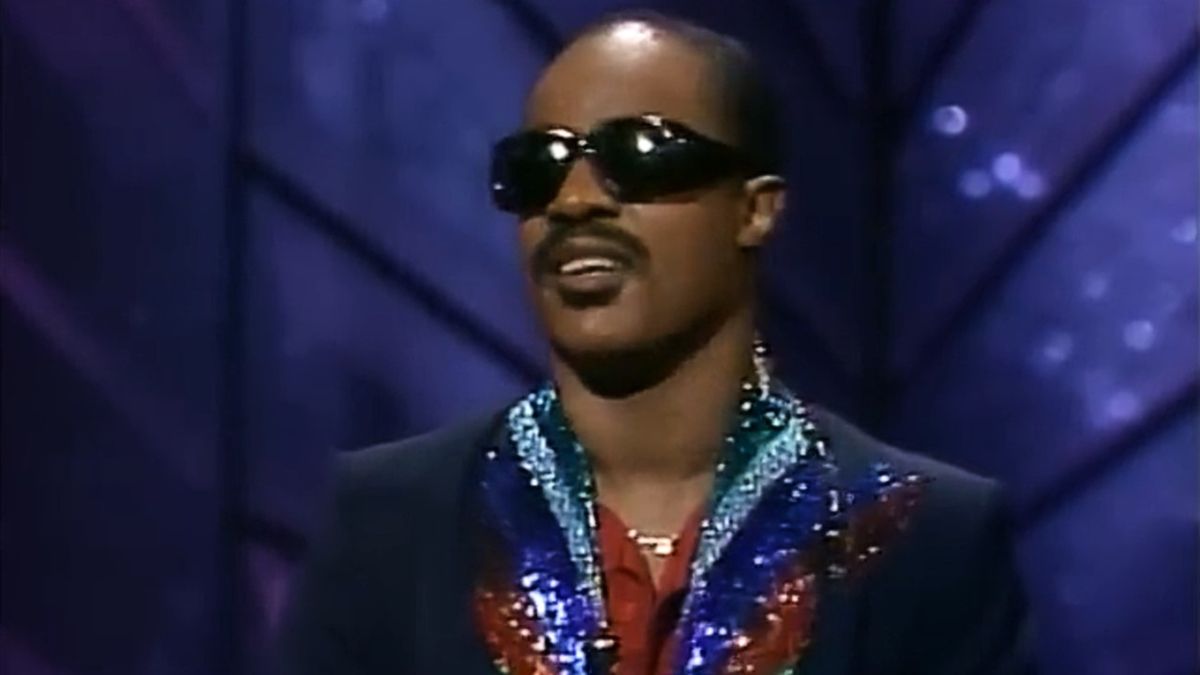
“I Just Called To Say I Love You” – Stevie Wonder
Stevie Wonder’s “I Just Called to Say I Love You” came at the height of the singer-songwriter’s popularity when the rom-com it appeared in, Woman in Red, was released in 1984. The soundtrack song ended up becoming one of Wonder’s biggest hits.
The best-selling song was one of multiple tunes Wonder wrote, produced, and sang for the film’s soundtrack. It was the epitome of early 1980s post-disco R&B with the Grammy winner programming most of its synth-filled production. Sounding like a surprise phone call between lovers allowed it to play like a tender, romantic letter filled with love and optimism. Unfortunately, the song’s success led to Wonder’s former songwriting partner, Lee Garrett, suing him over credit, which ended up being dismissed.
“I Just Called to Say I Love You” was released as the film’s first single and became an immediate international hit, landing in the Top 2 in most countries. It became the music icon’s best-selling single to date.
The Motown legend became the second Black man to win Best Original Song (at the 57th Academy Awards). Before winning the Oscar, Wonder won Best Original Song at the Golden Globes. He was nominated for three Grammys, including Song of the Year.
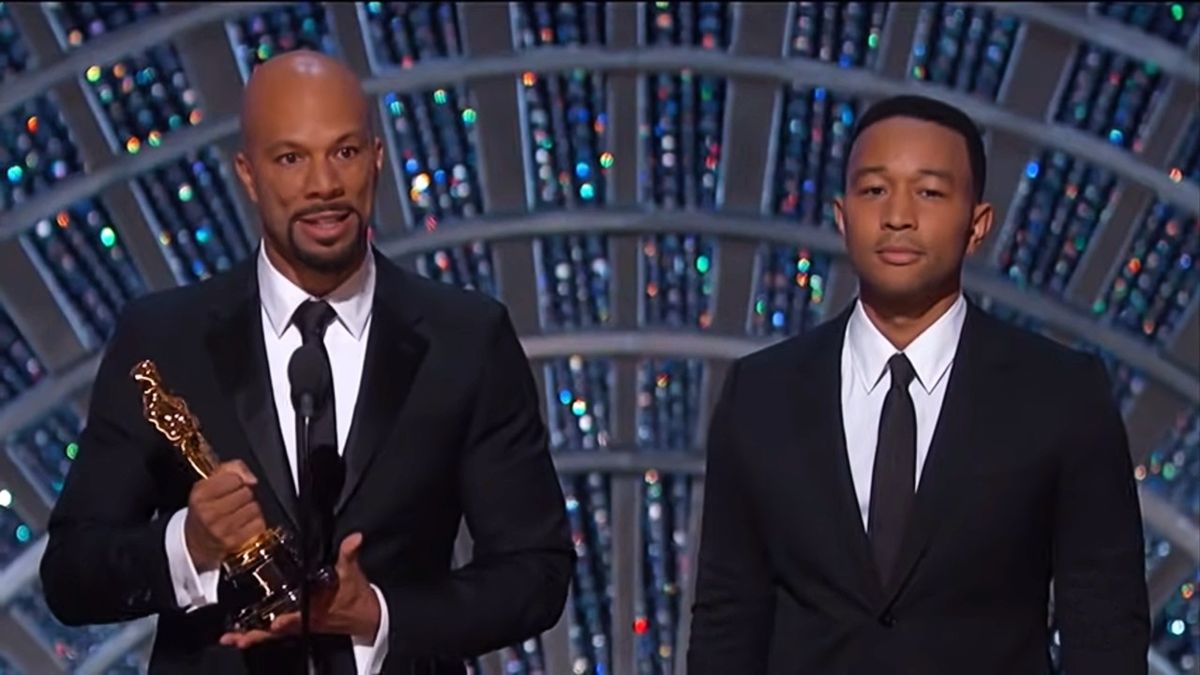
“Glory” – Common And John Legend
“Glory” by Common and John Legend was tailor-made to capture the emotions and heaviness exemplified by the civil rights biopic Selma when released in 2014. The anthemic song touched on the themes of the past and present.
The big, cinema anthem came about when co-writer Common was cast as civil rights leader James Bevel in the film. It came together after Legend and rapper Rhymefest hopped on board to co-write the civil rights song. In the spirit of Martin Luther King and the nonviolent marches, the music echoed the past and present civil rights movements with its blend of conscious hip-hop and old-school soul music courtesy of Legend’s music production. It captured the song’s lyrics around the Selma to Montgomery marches’ connection to present-day civil rights efforts. The single came at a crucial time in American history after the unrest of the 2014 Ferguson protests.
“Glory” stood out as the lone single from the Selma soundtrack. It became a minor US and international hit. The disappointing chart success didn’t mar the song’s impact, however.
The Grammy-winning duo won the Best Original Song Oscar at the 87th Academy Awards after their touching performance. Before winning the Oscar, Common and Legend won Best Song prizes at the Golden Globes and the Critics’ Choice Awards. They followed up those wins with three Grammy nominations, winning Best Song Written for Visual Media.

“Fight For You” – H.E.R.
“Fight For You” by H.E.R. channeled the tension around the life and assassination of Black Panther leader Fred Hampton for Judas and the Black Messiah when it was released in 2021. The recording was an award-season underdog.
The heartfelt cinematic anthem came together after director Shaka King requested the Grammy winner to write for the biopic, wanting something “contemporary with echoes of 1968.” It was specifically crafted to be the film’s main track, which she co-wrote with Tiara Thomas. The civil rights song blended soul and R&B music, drawing inspiration from Curtis Mayfield and the genre’s vast history. The music production from the singer-songwriter and D’Mile brought to life the lyrics around the film’s examination of racism, police brutality, and inequality. Much like “Glory,” the single came at the height of the Black Lives Matter movement and a renewed focus on other issues faced by Black Americans.
“Fight for You” served as Judas and the Black Messiah’s first single. The protest anthem became a minor US hit.
The Grammy-winning artist won Best Original Song at the 93rd Academy Awards, considered an Oscar upset by many critics. H.E.R. was nominated for multiple awards, including the Golden Globes and the Critics’ Choice Awards. She racked up three Grammy nominations on the music side, winning Best Traditional R&B Performance.

“Flashdance… What A Feeling” – Irene Cara
Irene Cara’s “Flashdance… What a Feeling” took over pop culture when it was released in 1983 as the first offering from one of the best dance movies, Flashdance. The huge pop tune became one of 1983’s biggest singles and one of the first post-disco dance hits.
The uplifting pop anthem started as a strict Giorgio Moroder production with aid from British pop singer Keith Forsey. Irene Cara joined the production after Moroder asked her to follow a request from Paramount Pictures for a big-name performer for the title track. She only agreed after stipulating she could only perform a song she wrote, which she did with Forsey. The soundtrack single drew from early 1980s dance-pop and post-disco with Moroder’s genre-defining music production. The lyrics were influenced by a film scene where the main character finds musical inspiration while dancing.
“Flashdance… What a Feeling” was originally pushed as a minor single for film promotion purposes before its commercial release, due to the film and song’s surprising popularity. Soon, the huge tune became a worldwide hit, landing within the Top 10 or 20.
The late singer and actress won Best Original Song at the 56th Academy Awards, becoming the first Black woman credited with writing and performing a song to win the award. Cara won the Best Song Golden Globe as well. She racked up multiple Grammy nominations on the music side, winning Best Female Pop Performance. The song’s impact and popularity garnered a placement on AFI’s 100 Years… 100 Songs and joined the National Recording Registry.
The above songs have affected film and culture in a way that is still felt today. This year, Grammy winner Jon Batiste received his first Best Original Song nomination for American Symphony’s “It Never Went Away.”
While our next awards season hasn’t started yet, there’s no better time to look up potential Best Original Song nominations. Of course, glance over our 2024 movie schedule to see potential Oscar-worthy films coming down the pipeline.

